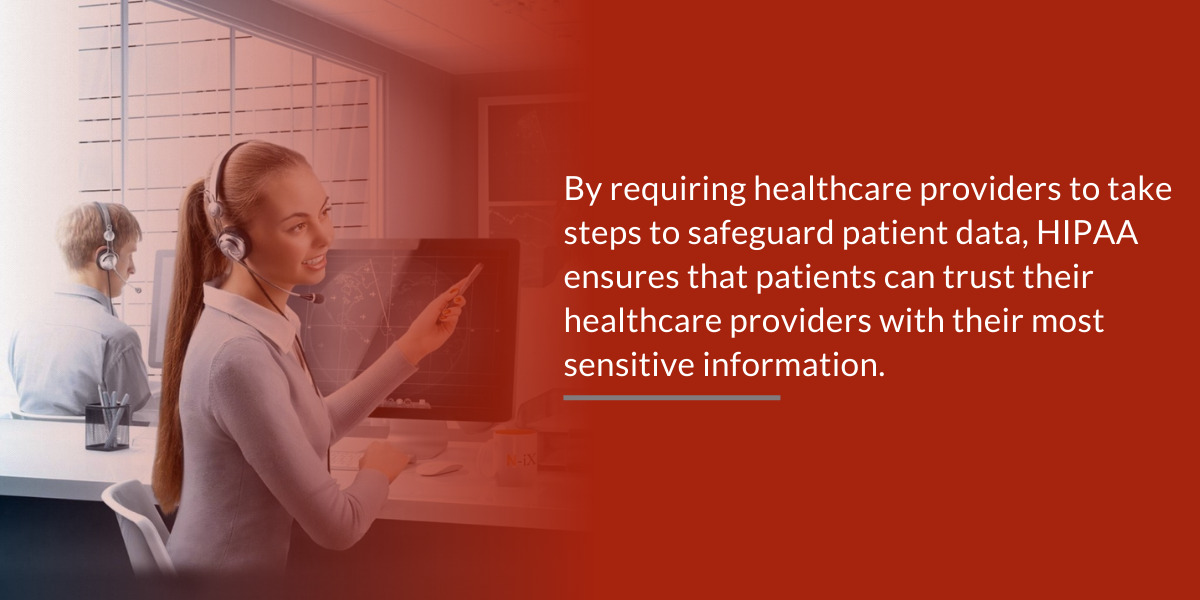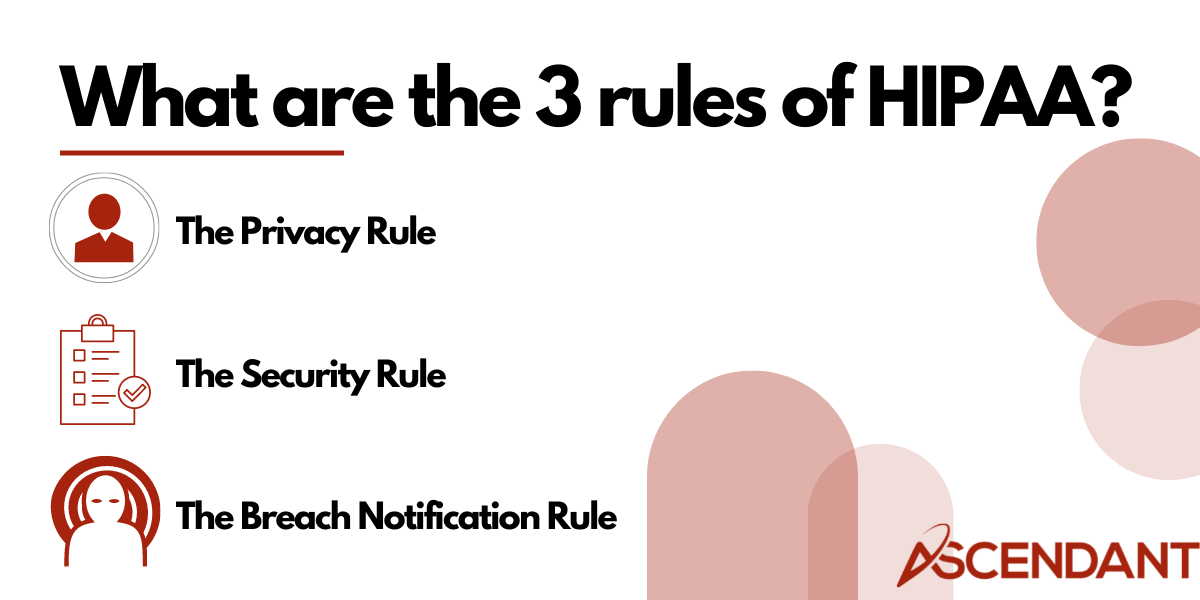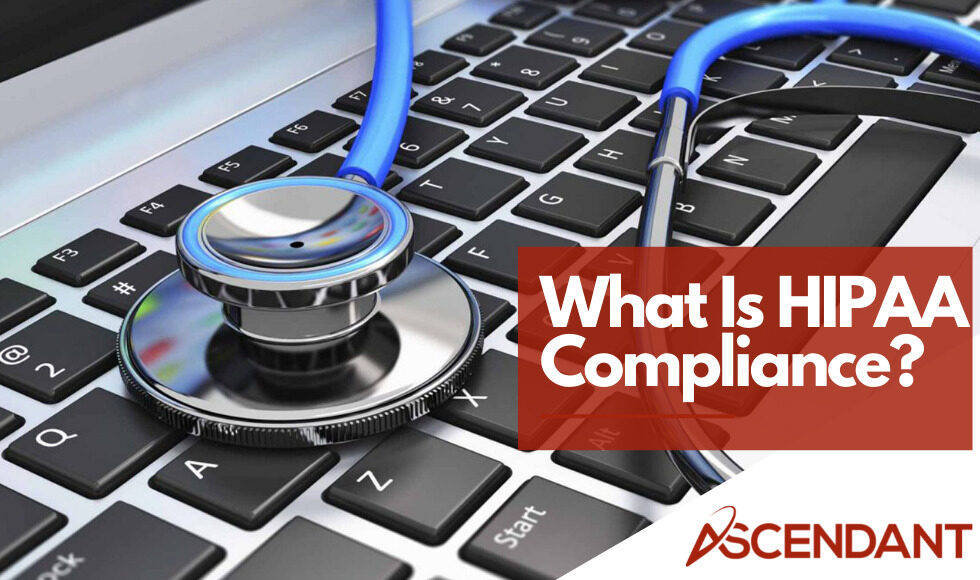What is HIPAA compliance? The Health Insurance Portability and Accountability Act (HIPAA) was enacted in 1996 and set national standards for the security and privacy of protected health information (PHI). HIPAA compliance is mandatory for all covered entities, which include healthcare providers, health plans, and clearinghouses.
Covered entities must put in place physical, administrative, and technical safeguards to protect the confidentiality, integrity, and availability of PHI. They must also ensure that PHI is only used or disclosed for authorized purposes.
In addition, covered entities must provide patients with access to their own PHI upon request and allow them to request amendment of inaccurate or incomplete information. HIPAA compliance is essential for protecting the privacy of patients and ensuring the security of PHI.
What Does HIPAA Stand For?
HIPAA stands for the Health Insurance Portability and Accountability Act of 1996. The name represents the four main goals of the legislation:
1. To make it easier for people to keep their health insurance coverage when they change or lose their jobs
2. To combat waste, fraud, and abuse in healthcare
3. To establish national standards for electronic health care transactions
4. To protect the confidentiality and security of health information
Why Was HIPAA Created?
HIPAA was created by The U.S. Department of Health and Human Services (HHS) in order to protect patient’s health information. The law requires health care providers, insurers, and business associates to take specific steps to safeguard patient information. This includes ensuring that only authorized individuals have access to patient data, and that data is correctly disposed of when it is no longer needed.
HIPAA also requires healthcare providers to notify patients of any breaches of their personal information. This helps patients protect themselves from identity theft and other types of fraud.

Since its enactment in 1996, HIPAA has helped protect the privacy of millions of Americans’ health information. By requiring healthcare providers to take steps to safeguard patient data, HIPAA helps ensure that patients can trust their healthcare providers with their most sensitive information.
What is Protected Health Information (PHI)?
Protected health information (PHI), also known as personal health information, is any information that is considered individually identifiable health information. This includes things like a person’s name, address, date of birth, social security number, and medical records/electronic health records. PHI can also have more sensitive information, such as genetic test results or details about someone’s mental health history.
Under HIPAA, covered entities, such as healthcare providers and insurers, must take preventative measures and steps to ensure that PHI is kept secure and only shared with authorized individuals. Unauthorized disclosure of PHI can result in civil and criminal penalties.
Companies That Deal With Protected Health Information (PHI)
The Health Insurance Portability and Accountability Act (HIPAA) standards apply to any individual or organization that holds, uses, or discloses protected health information (PHI).
HIPAA applies to various businesses, including hospitals, clinics, pharmacies, insurance companies, and other healthcare providers.
In addition, any business that contracts with a healthcare organization to provide support services must also comply with HIPAA standards. This includes companies that provide billing, transcription, and other administrative services.
Finally, any organization that maintains or transmits PHI on behalf of a covered entity must also comply with HIPAA rules. By following these standards, businesses can help ensure patient health information confidentiality.
What are the 3 rules of HIPAA?
Under the Health Insurance Portability and Accountability Act of 1996 (HIPAA), three primary rules must be followed to ensure the privacy and security of protected health information (PHI): The three rules are: The Privacy Rule. The Security Rule. The Breach Notification Rule.

How do you get HIPAA Compliance?
HIPAA compliance starts with understanding the requirements of the law and then taking steps to implement appropriate policies and procedures. To comply with HIPAA, healthcare organizations must put physical, administrative, and technical safeguards to protect patient information.
Technical safeguards involve using technology to protect PHI, such as encrypting data and ensuring that only authorized individuals can access PHI.
Administrative safeguards involve developing policies and procedures for managing patient information and training staff on handling protected health information (PHI).
Physical safeguards include things like locked cabinets and restricted access to facilities.
By taking these steps, healthcare organizations can ensure that they are compliant with HIPAA.
How do you verify HIPAA Compliance?
HIPAA compliance is an ongoing process that requires continuous monitoring and improvement. When it comes to HIPAA compliance, there are a few key people you need to reach out to verify that your organization is compliant. Contact your insurance company, HIPAA verified IT consultants, and an attorney.
However, by taking the time to assess risks and put in place adequate safeguards, organizations can help ensure that they handle PHI responsibly and promptly.
The U.S. Department of Health and Human Services has stated that covered entities that fail to comply with the HIPAA Privacy Rule, HIPAA Security Rule, or HIPAA Breach Notification Rule will be subject to civil and criminal penalties. Therefore, it is crucial for covered entities to understand their obligations under the Rule and take steps to ensure compliance. For more information on the HIPAA Privacy Rule, visit the HHS website or contact your local Office for Civil Rights.
What are examples of HIPAA Violations?
There are a number of ways in which HIPAA regulations can be violated. One common violation occurs when covered entities fail to secure sensitive patient data properly. This can include storing data on unsecured servers, sending data over unencrypted email, or even failing to dispose of paper records properly.
Another common violation occurs when covered entities use or disclose patient data without proper authorization. This can happen when employees access patient records without a legitimate need to do so, or when data is sold to third parties without patient consent.
Finally, HIPAA violations can also occur when covered entities fail to provide patients with proper notice of their rights under the law. For example, a covered entity might fail to include a note of privacy practices in its marketing materials, or it might fail to post a notice of privacy practices in a visible location.
These are a few examples of HIPAA violations; covered entities should take care to avoid all potential violations in order to ensure compliance with the law.
Take Control of Your Company Compliance with Ascendant Today
If you’re looking for a reliable and experienced managed IT service provider to help you get HIPAA compliant, look no further than Ascendant Technologies. We have the experience and expertise to help your business meet all of the HIPAA compliance requirements. Contact us today to learn more about our HIPAA-compliant IT services.


